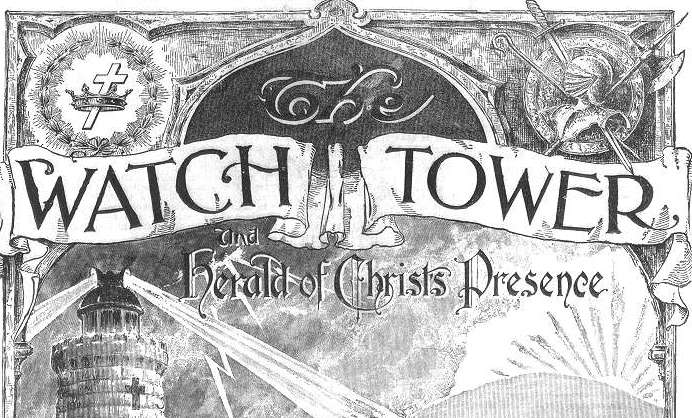Freep-mail me to get on or off my pro-life and Catholic List:
Please ping me to note-worthy Pro-Life or Catholic threads, or other threads of general interest.

A longer quote ...
Even as the curia began sitting in Rome to draft a conciliar response to the Reformation, there was hope of reconciliation. A number of cardinals who had gathered at the Council of Trent were convinced of one or more of the Reformers’ objections to the popular teaching of the day, and the popular rejection of the gospel by the pope and the monks had not yet been solidified. Since at this stage popes were not regarded as infallible (that was not declared until Vatican I, 1869-70) the door was open to the full reformation of Western Christendom until the Council of Trent (1545-63) finally closed it with its devastating canons against the gospel. Things that had been left to debate in the universities were now closed to discussion as the Council issued what it considered infallible pronouncements on the doctrine of justification and related truths. Now, issues upon which men and women of goodwill could differ were given a single answer: tradition is equal to Scripture in authority; the interpretation of Scripture and the elements of Holy Communion are to be denied to the laity; the Mass is a repetition of Christ’s sacrifice and each Mass atones for the people; transubstantiation was officially affirmed, as was the belief in purgatory.
However, the most important decree was also the longest, Concerning Justification. The decree begins by affirming, against any Pelagianism, the traditional Augustinian insistence on original sin and the need for grace. Human beings cannot even believe until grace first enables them. In fact, “It is furthermore declared that in adults the beginning of that justification must proceed from the predisposing grace of God through Jesus Christ, that is, from his vocation, whereby, without any merits on their part, they are called”—then the good news ends and the Roman error begins—”that they who by sin had been cut off from God may be disposed through his quickening and helping grace to convert themselves to their own justification by freely assenting to and cooperating with that grace.” So, while a person is not “able by his own free will and without the grace of God to move himself to justice in his sight,” he can and must cooperate with grace. Justification is defined as “not only a remission of sins but also the sanctification and renewal of the inward man through the voluntary reception of the grace and gifts whereby an unjust man becomes just.”
The Protestants never denied the sanctification and renewal of the inward man, but this was identified in Scripture as sanctification, not as justification. Rome simply combined the two concepts into one: God justifies us through the process of our moving, by the power of God’s Spirit at work in our lives, from being unjust to becoming just. This, however, rejects Paul’s whole point in Romans 4:1-5, that justification comes only to those who (a) are wicked and (b) stop working for it. God justifies the wicked as wicked, the sinner as sinner. That is the good news of the gospel, and the scandal of the Cross!
The most relevant canons are the following:
Canon 9. If anyone says that the sinner is justified by faith alone (supra, chapters 7-8), meaning that nothing else is required to cooperate in order to obtain the grace of justification, and that it is not in any way necessary that he be prepared and disposed by the action of his own will, let him be anathema.
Canon 11. If anyone says that men are justified either by the sole imputation of the justice of Christ or by the sole remission of sins, to the exclusion of the grace and the charity which is poured forth in their hearts by the Holy Ghost (Rom. 5:5), and remains in them, or also that the grace by which we are justified is only the good will of God, let him be anathema.
Canon 12. If anyone says that justifying faith is nothing else than confidence in divine mercy (supra, chapter 9), which remits sins for Christ’s sake, or that it is this confidence alone that justifies us, let him be anathema.
Canon 24. If anyone says that the justice received is not preserved and also not increased before God through good works (ibid., chapter 10), but that those works are merely the fruits and signs of justification obtained, but not the cause of the increase, let him be anathema.
Canon 30. If anyone says that after the reception of the grace of justification the guilt is so remitted and the debt of eternal punishment so blotted out to every repentant sinner, that no debt of temporal punishment remains to be discharged either in this world or in purgatory before the gates of heaven can be opened, let him be anathema.
Canon 32. If anyone says that the good works of the one justified are in such manner the gifts of God that they are not also the good merits of him justified; or that the one justified by the good works that he performs by the grace of God and the merit of Jesus Christ, whose living member he is, does not truly merit an increase of grace, eternal life, and in case he dies in grace the attainment of eternal life itself and also an increase of glory, let him be anathema.
In other words, men and women are accepted before God on the basis of their cooperation with God’s grace over the course of their lives, rather than on the basis of Christ’s finished work alone, received through faith alone, to the glory of God alone. There are indeed two fundamentally different answers to that recurring biblical question, “How can I be saved?” and, therefore, two fundamentally different gospels.
2. The doctrine of the church as expounded by the Roman church, which requires sound, orthodox Roman Catholics to regard the gospel, as understood by evangelicals, as heresy.
We must remember that it is not we who anathematized Rome, but Rome that anathematized the gospel and thereby anathematized itself. The issue is not even really the condemnation of Protestants (those wounds are easy to heal) but the anathema against the gospel. The evangelicals who remain authentic witnesses to the gospel of grace alone through faith alone, therefore, are carrying on the Catholic faith. Just prior to the Council of Trent, there were many—including cardinals—who accepted the material principle (that is, the gospel) as the Reformation restated it. In fact, there was still much hope on both sides that a unity could be achieved. But when the Council of Trent repeatedly declared that those who believed that their only hope for salvation was faith in Christ now fell under the church’s ban, Rome became a schismatic body.
Freep-mail me to get on or off my pro-life and Catholic List:
Please ping me to note-worthy Pro-Life or Catholic threads, or other threads of general interest.

Reformation Day is coming PING!
I heard/read Horton was so embarrassed by ho badly he lost this debate that he cut out the Catholic comments and responses when he aired the debate on his radio program.
https://store.patrickmadrid.com/what-still-divides-us-debate-mp3/
I listened to that debate in 1995 or so. Even the Protestant church which ran the debate admitted the Protestant side stunk.
and for his next article, it must be:
“What Still Keeps Us Apart” by Michael Horton (or why Michael Horton and the Calvinists Anathematized themselves from the Lutherans)
From a Calvinist website — I don’t think I’ll believe their slant on things.
Sorry, but no. Lame article. There are, simply put, too many holes, half-truths, and misty assertions, for one to take apart while waiting to start the work day. Suffice it to say that those who call themselves evangelicals will doubtless enjoy the article, while those who love history, and the Catholic Church, will not.
But when the Council of Trent repeatedly declared that those who believed that their only hope for salvation was faith in Christ now fell under the church's ban
Trent made no such declaration, much less did so repeatedly.
But Trent did anathematize those who believed that "saving faith" is merely believing that Christ saved you, which is what Luther said. That amounts to believing your own salvation into existence, an error that is the direct progenitor of the "prosperity Gospel" error. After all, if you can believe your own salvation into existence, why can't you believe your own wealth into existence?





How come Protestants didn’t remove the Sermon on the Mount from the Bible?
ping